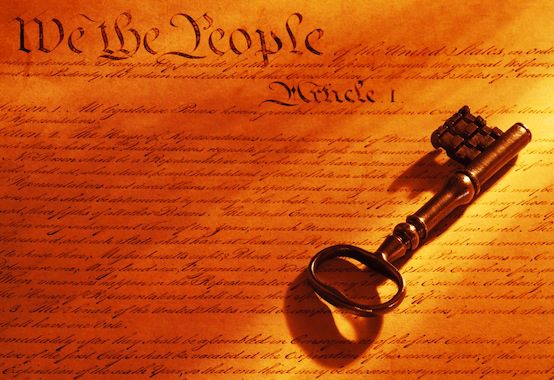White House Panel Rebukes NSA Spying

Six months after Edward Snowden’s first powerpoint slides went public, it’s official: all three branches of government have weighed in against the NSA’s surveillance overreach.
Yesterday, President Obama’s own hand-picked panel issued a 308-page report recommending a series of reforms to the National Security Agency and overall national surveillance structure. The five-member panel had previously been criticized for not being independent enough of the presidency, and included such members as Cass Sunstein, President Obama’s former “nudge” and regulatory czar who is also married to current UN Ambassador Samantha Power; Michael Morrell, the recently resigned deputy director of the CIA; and Peter Swire, a former Obama economic aide.
Nevertheless, the panel released 46 sweeping recommendations, highlighted by the recommendation to end the bulk phone record collection program that made up Snowden’s very first revelation. It urged congress to pass legislation ending the NSA’s ability to collect and maintain records of Americans’ phone metadata for years on the presumption that it may at some point be pertinent and subject to a legitimate search. Instead, the panel recommended that the NSA be barred from such pre-emptive collection, and instead need to obtain a specific Foreign Intelligence Surveillance Court order for each set of records. Instead of being preserved in government archives in perpetuity, the records would be subject to the company’s own data retention policies, so a court order served for two-year-old records at Cricket, which only retains records for six months, would come up blank. Verizon, the first company whose cooperation with the NSA was exposed, keeps records for one year, and AT&T, five years.
Earlier this week, a George W. Bush-appointed judge ruled the program likely unconstitutional and issued a (stayed pending appeal) injunction against it, writing “I cannot imagine a more ‘indiscriminate’ and ‘arbitrary invasion’ than this systematic and high tech collection and retention of personal data on virtually every single citizen for purposes of querying and analyzing it without prior judicial approval.” The same program was the target of Justin Amash and John Conyers’ joint effort to defund NSA bulk collection this spring, and is banned under a proposed law by Patriot Act author Jim Sensenbrenner (R-Wis.) and Senate Judiciary Chairman Patrick Leahy (D-Vt.). President Obama is not bound by the recommendations of his panel, and the White House has said that it will announce which suggestions it will itself adopt in January.
What is particularly important, and special, about this case is the unison with parts of the executive, legislative, and judicial branches are speaking in rebuking the NSA’s activities as unconstitutional. Often in our nation’s history, particularly post-Warren Court, we have acted as if the only legitimate judges of the Constitution sit on the Supreme Court. After last summer’s Obamacare ruling, for instance, Democrats and many in the media reported that the law was authoritatively stamped “constitutional” forever. That is an impoverished formalism, however, unworthy of our democratic system.
Instead, thanks to the wisdom of the Founders, we have three branches of government through which to pursue the political determination of constitutionality. The Constitution does not defend itself, nor does it belong to a single branch to define. Instead, our checking and balancing institutions of government compete in the political arena to give heightened voice to the public debate and uphold their sworn oath to protect and defend the Constitution of the United States. So they are now engaged in a great civil discussion to determine what invasions of privacy the Constitution permits, and what invasions prudence counsels to be forbidden, even within its limits.
Perhaps Edward Snowden’s greatest achievement, beyond the pushback of the surveillance state, beyond the awakening of the public to any particular debate, is the awakening of our Constitutional order to demonstrate its continued potency in the face of new and unexpected challenges.
Comments